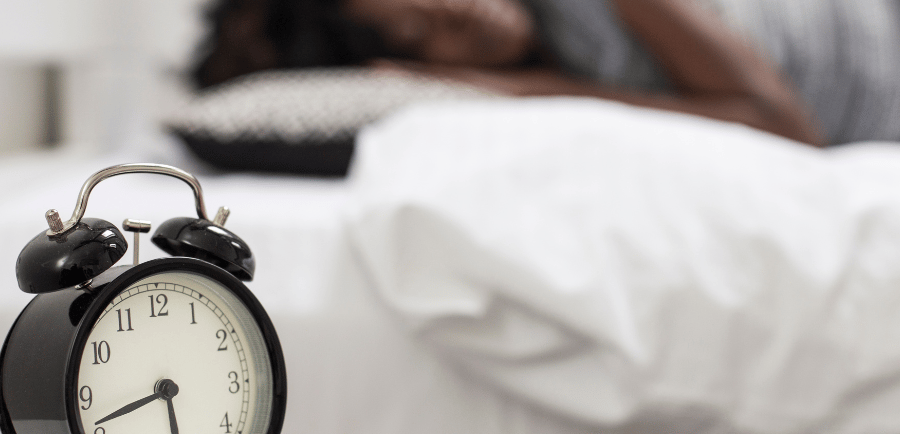How Sleep Affects Your Vision
From dry eyes to more serious conditions, skimping on sleep can have tangible consequences for your vision. Let’s dive into how those precious hours of rest directly affect what you see.
5/5/20253 min read


Ever woken up with blurry vision after a restless night? It’s not just your imagination. The quality and quantity of your sleep have a surprisingly significant impact on the health and clarity of your eyes. From dry eyes to more serious conditions, skimping on sleep can have tangible consequences for your vision. Let’s dive into how those precious hours of rest directly affect what you see.
The Eyes Need Rest Too: The Link Between Sleep and Eye Function
Just like the rest of your body, your eyes work tirelessly throughout the day. They constantly focus, adjust to light, and process a flood of visual information. Sleep provides a crucial period for them to recover and rejuvenate. During sleep, several key processes occur that are vital for maintaining healthy vision:
Tear Film Restoration: While you sleep, your eyes produce and replenish the tear film – that thin layer of moisture that lubricates and protects the surface of your eyes. Insufficient sleep can disrupt this process, leading to dry eye syndrome, characterized by irritation, grittiness, blurred vision, and even excessive tearing as the eyes try to compensate.
Reduced Eye Strain: Sleep allows the eye muscles to relax, relieving the strain accumulated during waking hours. Chronic sleep deprivation can contribute to eye fatigue, making it difficult to focus and potentially leading to headaches and discomfort around the eyes.
Inflammation Reduction: Sleep plays a vital role in regulating inflammation throughout the body, including the eyes. Lack of sleep can exacerbate inflammatory conditions affecting the eyes, such as uveitis (inflammation of the middle layer of the eye) or contribute to the progression of other eye diseases.
Hormonal Balance: Sleep helps regulate hormone levels, some of which are crucial for eye health. For instance, melatonin, a hormone primarily released during sleep, has antioxidant properties that may protect the eyes from damage.
The Domino Effect: How Sleep Problems Can Harm Your Vision
Consistent lack of sleep can trigger a cascade of issues that negatively impact your eyesight:
Blurred Vision: As mentioned earlier, dry eyes and eye strain due to sleep deprivation can lead to temporary blurred vision.
Eye Spasms (Myokymia): Those annoying little twitches you sometimes experience in your eyelid can be exacerbated by fatigue and lack of sleep.
Increased Risk of Eye Conditions: Emerging research suggests a potential link between chronic sleep deprivation and an increased risk of more serious eye conditions like glaucoma (damage to the optic nerve) and age-related macular degeneration (AMD). While more research is needed, the connection highlights the importance of prioritizing sleep for long-term eye health.
Impact on Cognitive Functions Related to Vision: Sleep deprivation impairs cognitive functions like attention and reaction time. This can indirectly affect your vision by making it harder to process visual information quickly and accurately, which is crucial for tasks like driving or playing sports.
Prioritizing Sleep for Brighter Vision
Making sleep a priority isn’t just about feeling rested; it’s an investment in your overall health, including your precious eyesight. Here are some tips for cultivating healthy sleep habits:
Establish a Regular Sleep Schedule: Go to bed and wake up around the same time each day, even on weekends, to regulate your body’s natural sleep-wake cycle.
Create a Relaxing Bedtime Routine: Wind down before bed with activities like reading, taking a warm bath, or listening to calming music.
Optimize Your Sleep Environment: Ensure your bedroom is dark, quiet, and cool.
Limit Screen Time Before Bed: The blue light emitted from electronic devices can interfere with melatonin production.
Avoid Caffeine and Alcohol Before Sleep: These substances can disrupt your sleep patterns.
Manage Stress: Practice relaxation techniques like deep breathing or meditation to reduce stress that can interfere with sleep.
Listen to Your Body (and Your Eyes!)
If you consistently experience blurry vision, dry eyes, or other eye discomfort, especially if you’re also struggling with sleep, it’s essential to consult an eye doctor. They can properly diagnose any underlying issues and recommend appropriate treatment.
In conclusion, the connection between sleep and vision is undeniable. By prioritizing sufficient, quality sleep, you’re not just feeling more refreshed; you’re actively contributing to the long-term health and clarity of your eyesight. So, make sleep a cornerstone of your well-being and help your eyes see a brighter future!

